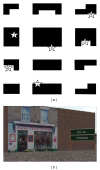Assessing topographical orientation skills in cannabis users
- PMID: 22272167
- PMCID: PMC3259701
- DOI: 10.1100/2012/137071
Assessing topographical orientation skills in cannabis users
Abstract
The long-term effects of cannabis on human cognition are still unclear, but, considering that cannabis is a widely used substance and, overall, its potential use in therapeutic interventions, it is important to evaluate them. We hypothesize that the discrepancies among studies could be attributed to the specific cognitive function investigated and that skills subserved by the hippocampus, such as the spatial orientation abilities and, specifically, the ability to form and use cognitive maps, should be more compromised than others. Indeed it has been showed that cannabis users have a reduced hippocampus and that the hippocampus is the brain region in which cannabis has the greatest effect since it contains the highest concentration of cannabinoid receptors. To test this hypothesis we asked 15 heavy cannabis users and 19 nonusers to perform a virtual navigational test, the CMT, that assesses the ability to form and use cognitive maps. We found that using cannabis has no effect on these hippocampus-dependent orientation skills. We discuss the implications of our findings and how they relate to evidence reported in the literature that the intervention of functional reorganization mechanisms in cannabis user allows them to cope with the cognitive demands of navigational tasks.
Figures
Similar articles
-
Spatial working memory in heavy cannabis users: a functional magnetic resonance imaging study.Psychopharmacology (Berl). 2004 Nov;176(3-4):239-47. doi: 10.1007/s00213-004-1885-8. Epub 2004 Jun 16. Psychopharmacology (Berl). 2004. PMID: 15205869 Clinical Trial.
-
A study investigating the acute dose-response effects of 13 mg and 17 mg Delta 9- tetrahydrocannabinol on cognitive-motor skills, subjective and autonomic measures in regular users of marijuana.J Psychopharmacol. 2008 Jun;22(4):441-51. doi: 10.1177/0269881108088194. J Psychopharmacol. 2008. PMID: 18635724 Clinical Trial.
-
Functional connectivity in brain networks underlying cognitive control in chronic cannabis users.Neuropsychopharmacology. 2012 Jul;37(8):1923-33. doi: 10.1038/npp.2012.39. Epub 2012 Apr 25. Neuropsychopharmacology. 2012. PMID: 22534625 Free PMC article.
-
Drug-related decrease in neuropsychological functions of abstinent drug users.Curr Drug Abuse Rev. 2011 Mar;4(1):42-56. doi: 10.2174/1874473711104010042. Curr Drug Abuse Rev. 2011. PMID: 21466500 Review.
-
Cerebellar alterations in cannabis users: A systematic review.Addict Biol. 2019 Nov;24(6):1121-1137. doi: 10.1111/adb.12714. Epub 2019 Feb 27. Addict Biol. 2019. PMID: 30811097
Cited by
-
A preliminary study of functional brain activation among marijuana users during performance of a virtual water maze task.J Addict. 2013;2013:461029. doi: 10.1155/2013/461029. J Addict. 2013. PMID: 23951549 Free PMC article.
-
The Fear to Move in a Crowded Environment. Poor Spatial Memory Related to Agoraphobic Disorder.Brain Sci. 2021 Jun 16;11(6):796. doi: 10.3390/brainsci11060796. Brain Sci. 2021. PMID: 34208661 Free PMC article.
References
-
- EMCDDA. Annual report on the state of the drugs problem in Europe. Lisbon, Portugal, 2009.
-
- UNODC. World drug report 2010
-
- Zajicek JP, Apostu VI. Role of cannabinoids in multiple sclerosis. CNS Drugs. 2011;25(3):187–201. - PubMed
-
- Curran VH, Brignell C, Fletcher S, Middleton P, Henry J. Cognitive and subjective dose-response effects of acute oral Δ9-tetrahydrocannabinol (THC) in infrequent cannabis users. Psychopharmacology. 2002;164(1):61–70. - PubMed
-
- Lane SD, Cherek DR, Tcheremissine OV, Lieving LM, Pietras CJ. Acute marijuana effects on human risk taking. Neuropsychopharmacology. 2005;30(4):800–809. - PubMed
MeSH terms
LinkOut - more resources
Full Text Sources
Medical


